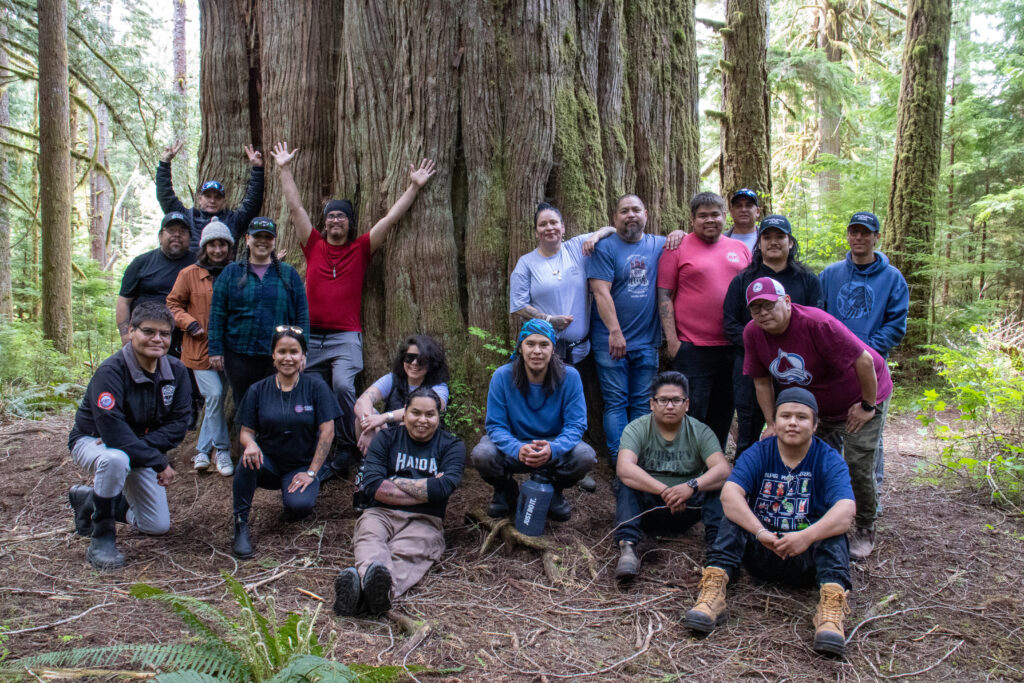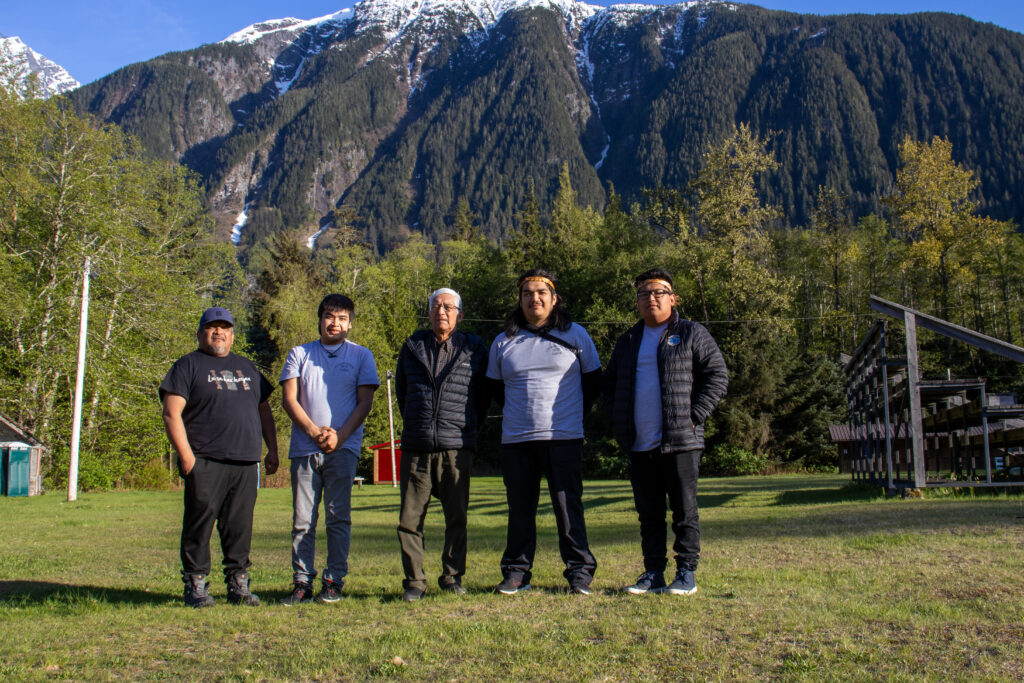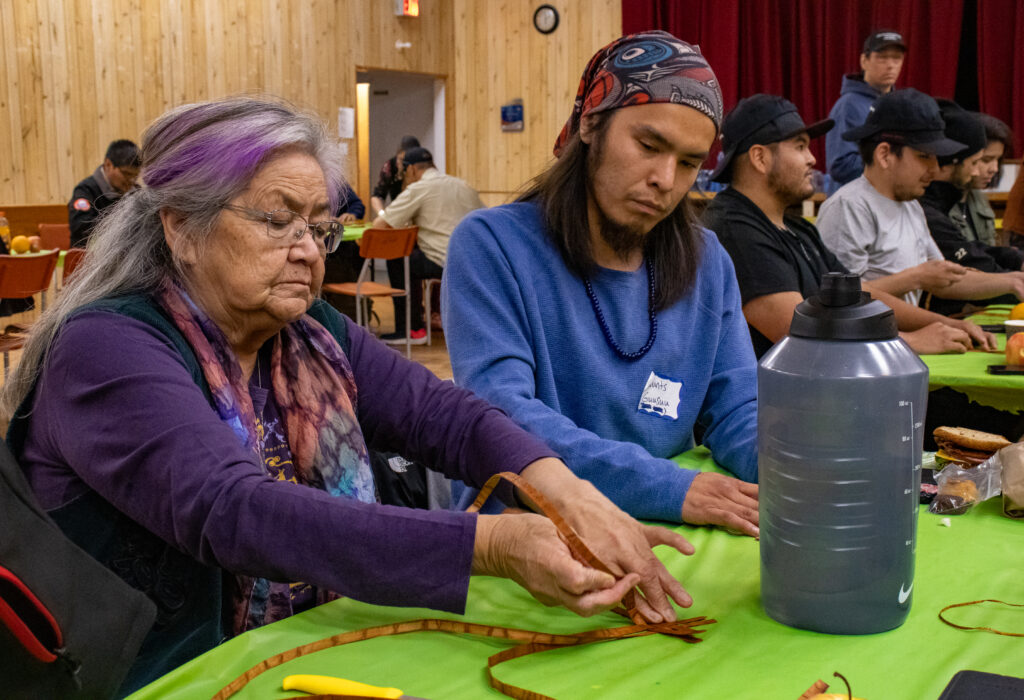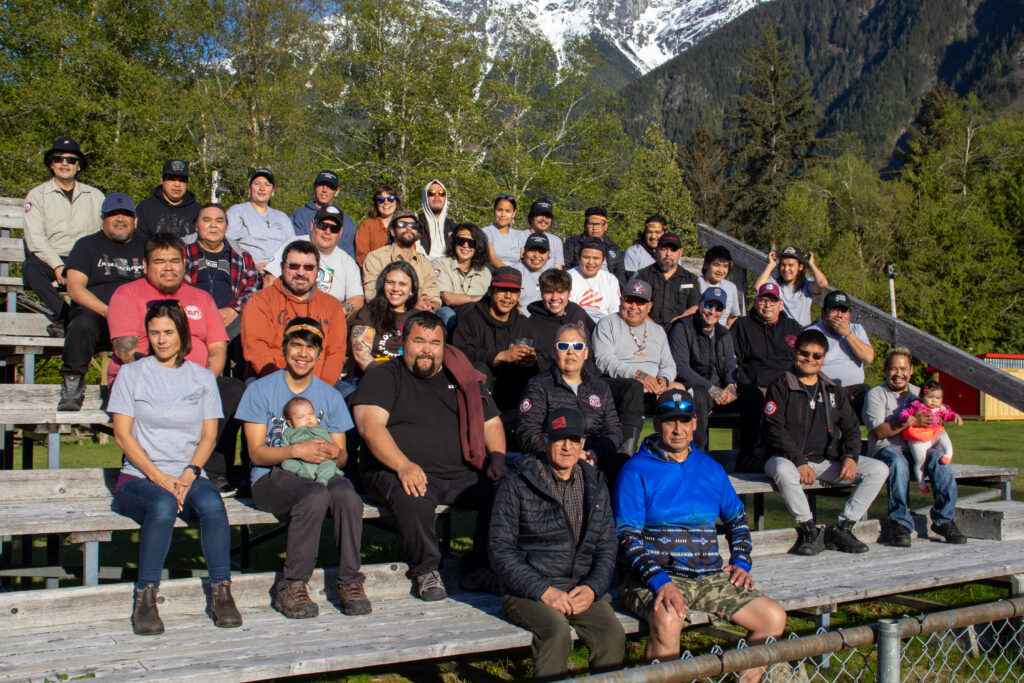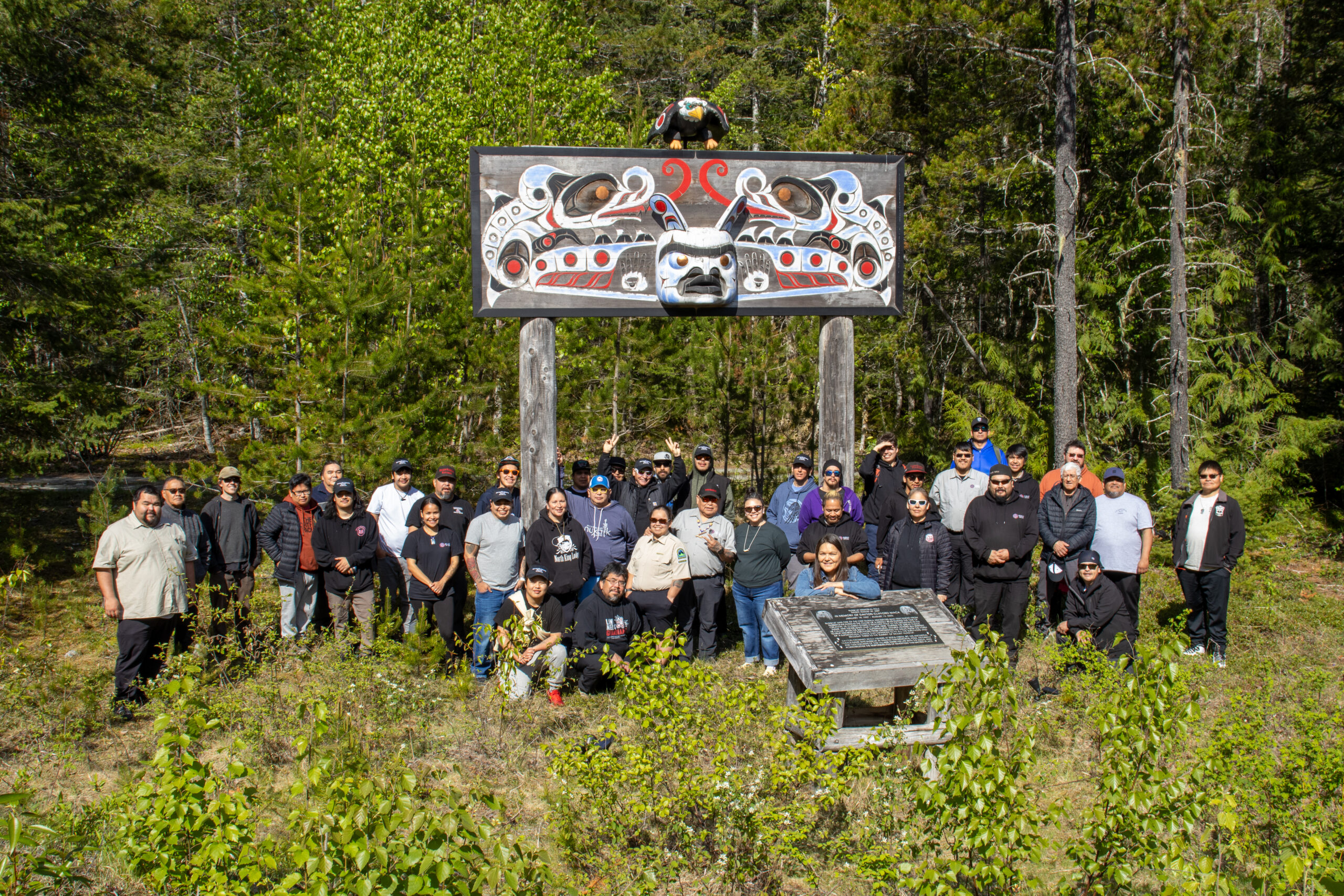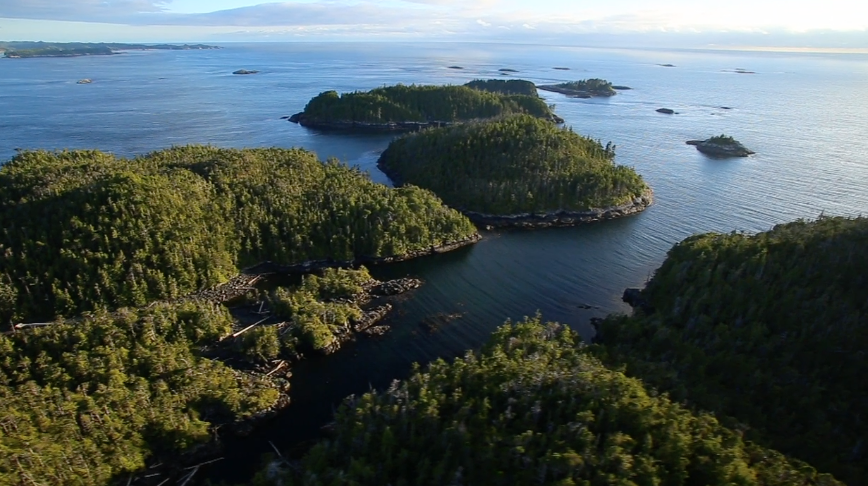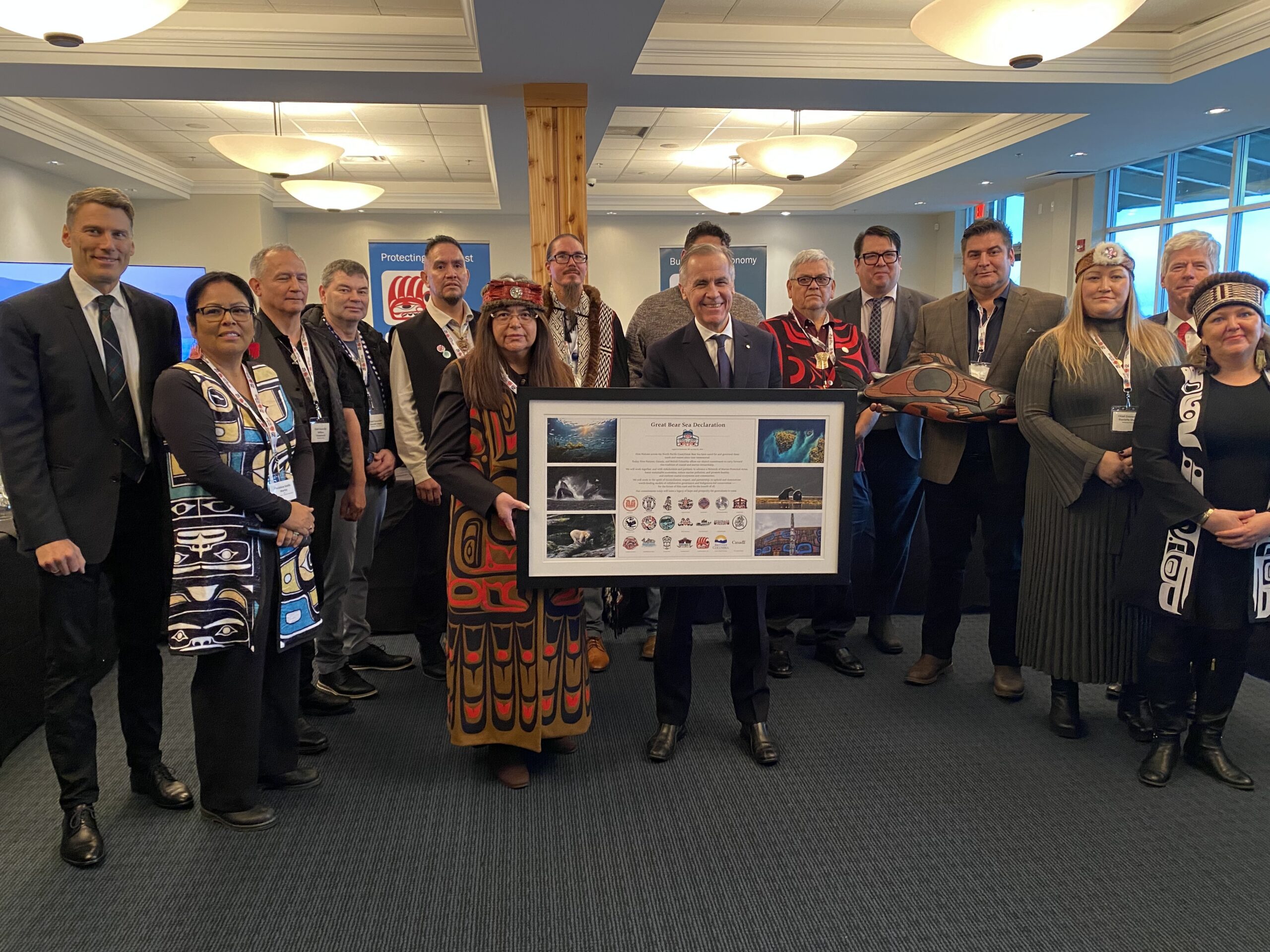Since 2008, the Coastal Stewardship Network (CSN), a program of Coastal First Nations-Great Bear Initiative, has facilitated an Annual Gathering to bring Guardians and other stewardship staff together, to discuss, compare and strengthen regional stewardship efforts.
The 2024 CSN Annual Gathering (May 6-10) was the first ever hosted in Nuxalkulmc (Nuxalk homelands), and featured several group field trips to learn about the region’s cultural and natural significance. Ernie Bolton, a Gitxaała Elder from the village of Lax Klan, accompanied a delegation of Gitxaała Guardians to attend this year’s gathering. Ernie says while he never formally worked as a Guardian, he grew up learning to guard and look after his territory from his dad and family, as well as through his community, culture and governance.
“We protect our territories through feasting,” Ernie says during a cedar weaving workshop on the first day of the gathering. “Each clan has a territory, water, rivers, lands, we all share that. Those places, that’s where our names come from, right from the skies to the mountains, to the waters. We still practice our feasting — through deaths, loss, passing down names and chieftainships. We still exercise that business today.”
The Guardians’ Gathering was the first of its kind that Ernie attended. He says he was inspired to hear what he heard throughout the week, with Guardians from many Nations sharing their experiences. The gatherings feature a mix of hands-on cultural activities, like drum-making or cedar-weaving, which involves Elders and knowledge keepers of the hosting Nations, as well as highly practical field training, such as environmental monitoring techniques, or compliance and enforcement training.
“The Guardians are working to keep alive what our ancestors have left us,” Ernie says.
Cordell Nelson also traveled with the Gitxaała delegation. He has been working as a Guardian since 2020. Cordell says he grew up on the ocean with his dad and uncles. He learned about his culture from his Elders. Being a Guardian fits into what he grew up learning from his community, he says, and he knows they’re “making a difference” and inspiring the youth.
“I’ve worked closely with the Fisheries Program in the community. We’re out on the water, doing monitoring of the commercial fishing openings and closing, putting together reports, collecting and submitting data used by our supervisors for management decisions,” Cordell explains. “I love being a Guardian. I grew up on the water. It’s a good position to hold in our communities.”
Today’s Guardian programs are modern expressions of ancestral responsibilities to protect lands and waters, which have been a central part of place-based legal traditions and communal values of all coastal communities for tens of thousands of years.
Guardians fill in gaps of provincial and federal agencies, contributing to compliance and enforcement, emergency response and public safety, and conservation and environmental management. They are the eyes and ears of their territories, at times saving lives, saving tax dollars, protecting and enhancing ecosystems, protecting and enhancing places of significance, resources, and advancing relationships between First Nations and non-First Nations governments.
Read more about the origins of the CSN Guardian program here. Read the 2022 Case for Investment here.
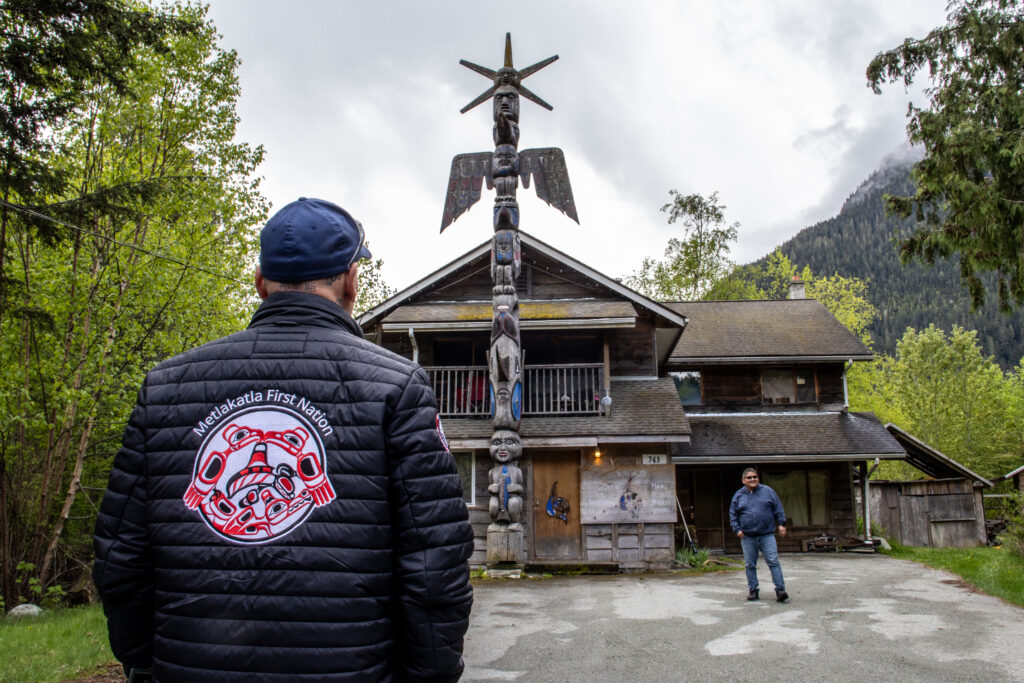
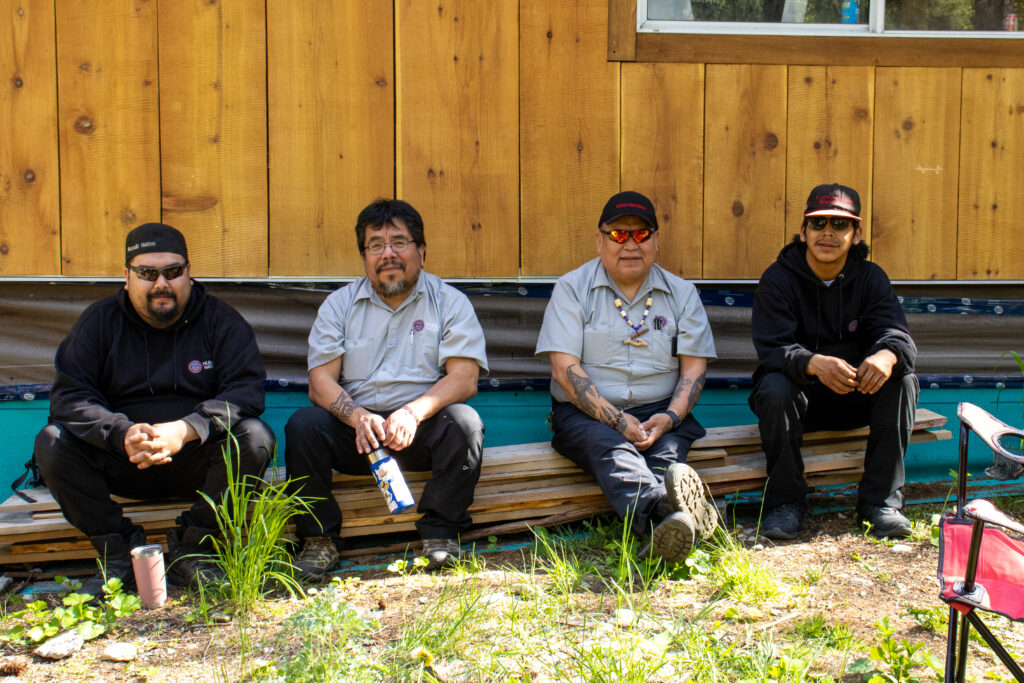
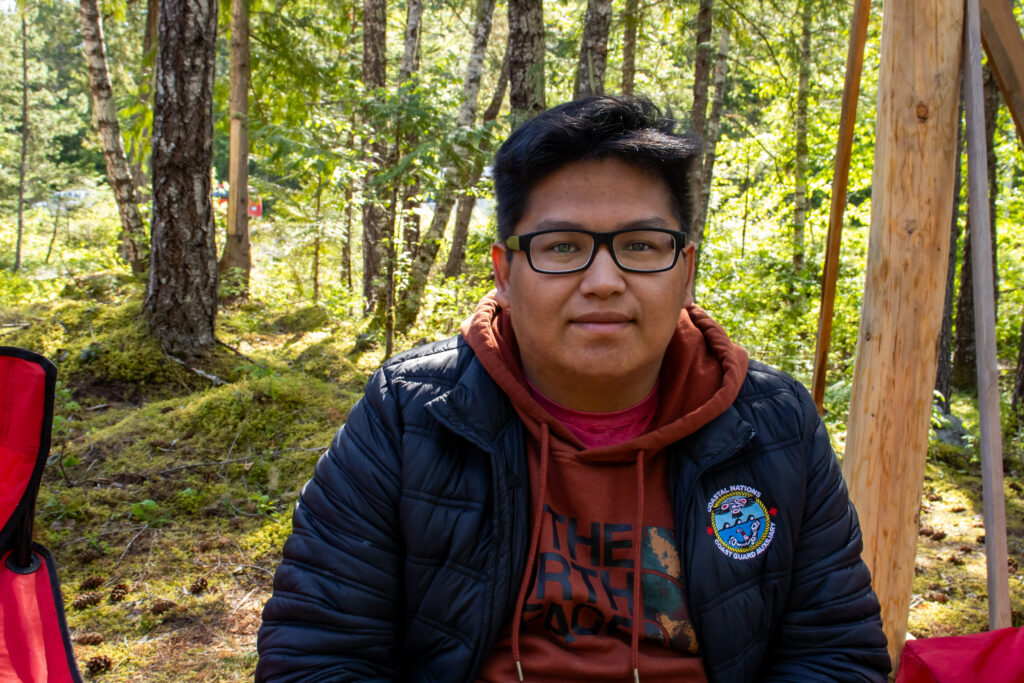
‘It’s important we come together’
Guardians from the Wuikinuxv, Heiltsuk, Kitasoo Xai’Xais, Nuxalk, Gitga’at, Gitxaała, Metlakatla, Old Massett Village Council, Skidegate Band Council and the Council of the Haida Nation attended the three-day gathering in Nuxalkulmc. William Hanuse, a Wuikinuxv Guardian, says Guardians are mending relationships between each of their communities.
“The Guardians are like a gateway to mending all those wounds we used to hold against each other,” he says, while Guardians take turns jumping in the cold river at Nusq’lst village. “We get a lot more done together. We’re stronger as one. Our bonds give us that energy we need to protect what’s ours. We’re all in this together.”
The Guardian’s Gathering offers the Guardians from neighbouring Nations a chance to gather, visit each other’s homelands, share experiences, struggles and successes and to breathe life into alliances that’ve existed long before the program formally took root.
William says Guardians have more in common than not, as they’re the ones that are “always out” in their territories, monitoring, managing, surveying and providing critical information for their leadership and communities to make informed management decisions. “Our words are more credible than anyone else’s, because we’re always out there,” he says. “Being a Guardian is a beautiful job. It’s one of the best jobs I’ve ever encountered. And it’s our responsibility to do it.”
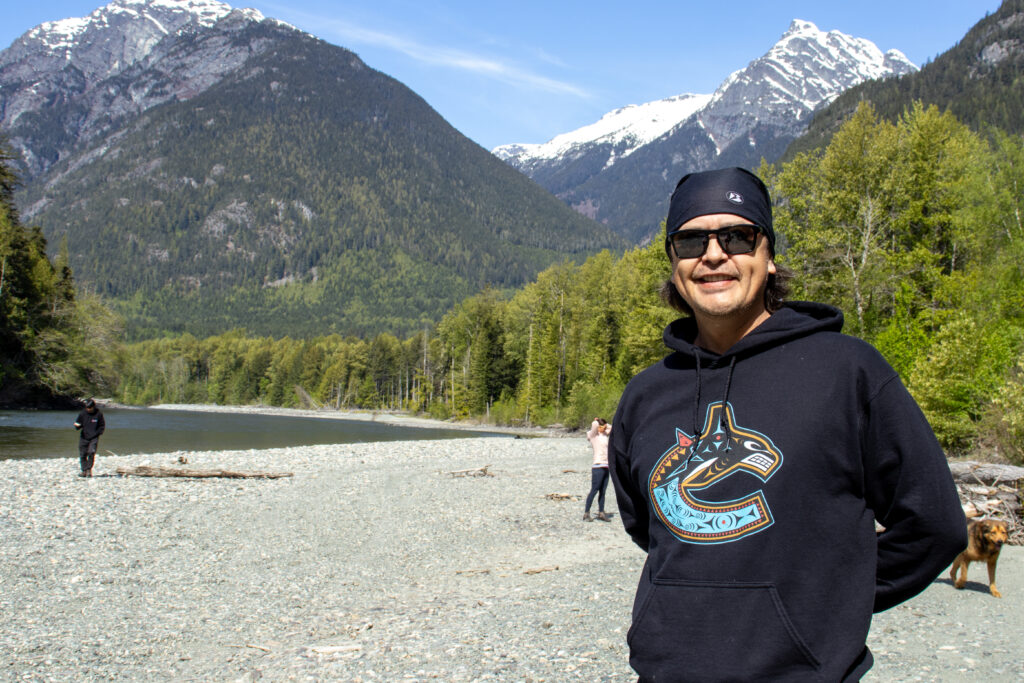
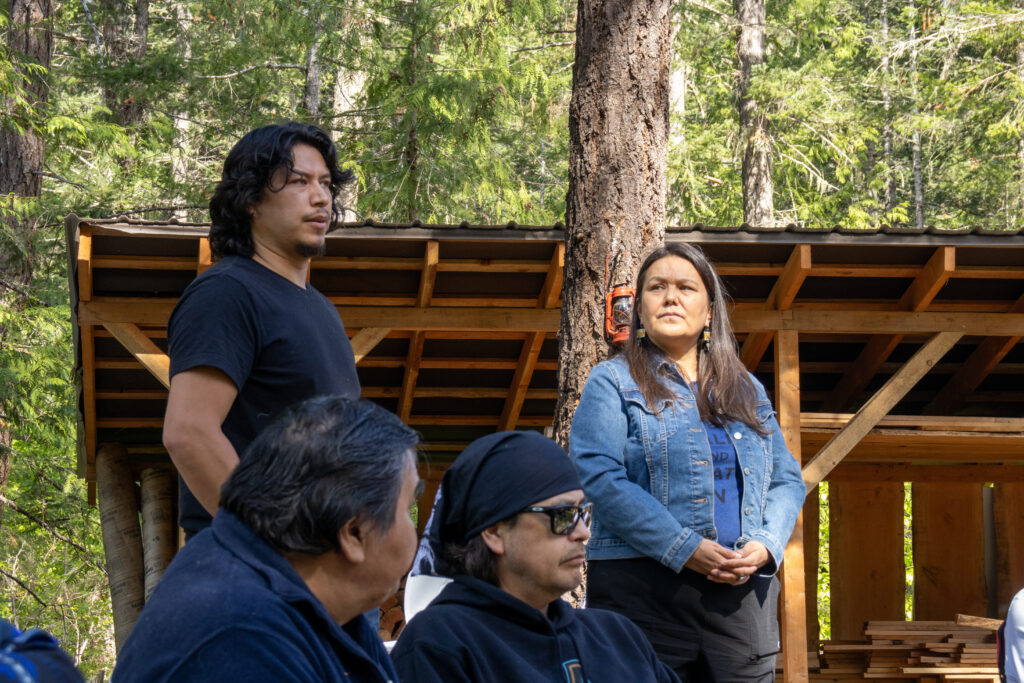
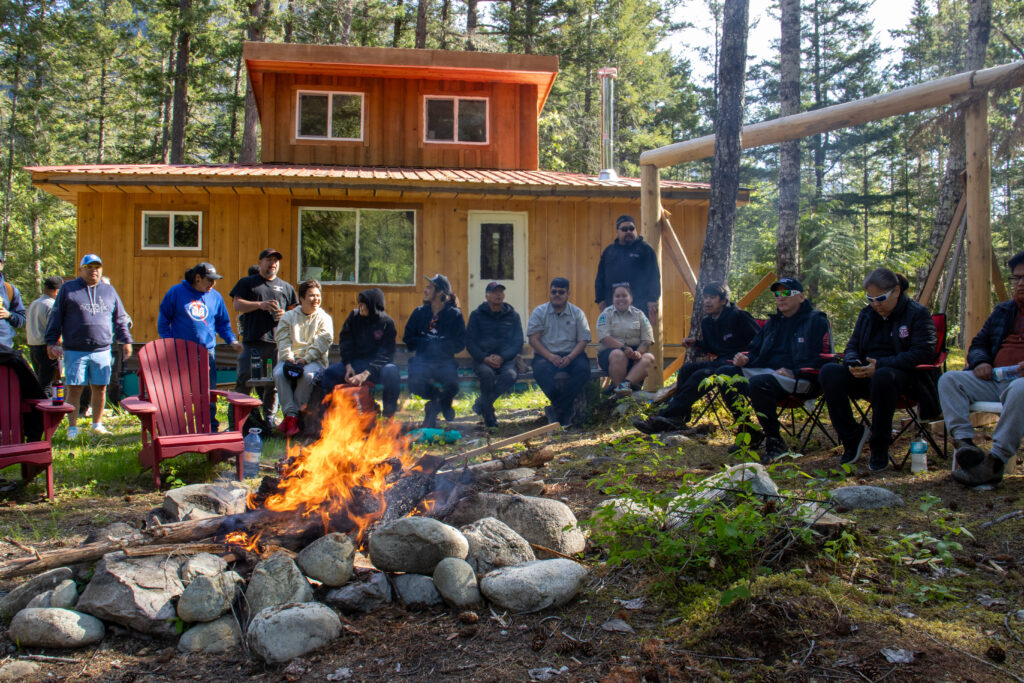
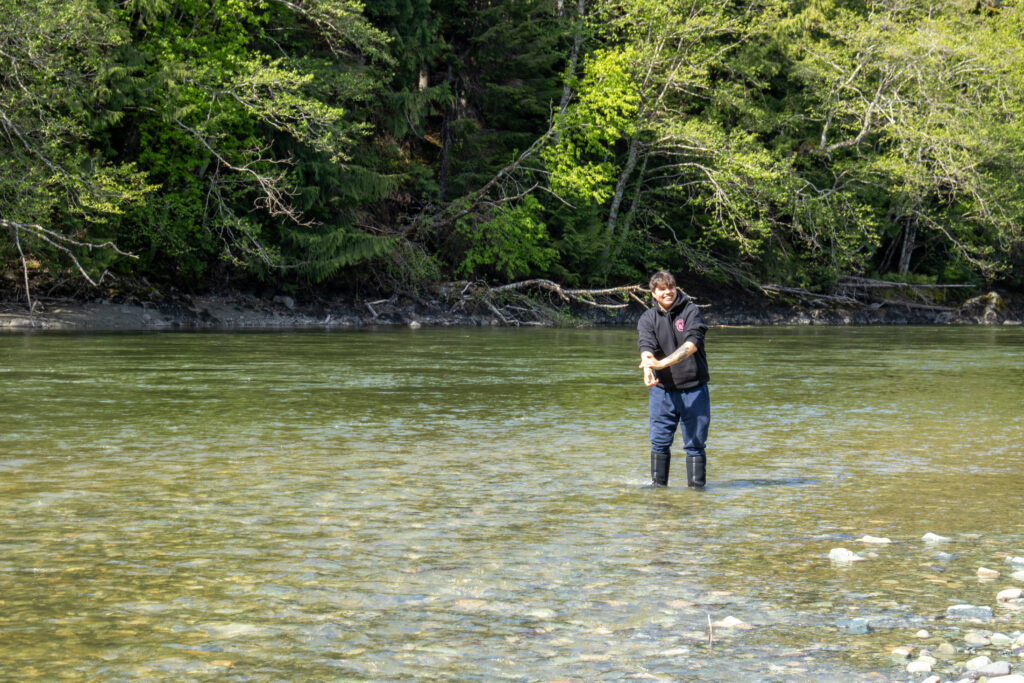
‘We need more Guardians’
Rich Reid, a Heiltsuk Guardian who started working as a Guardian in 2012, says Guardians uphold ancestral laws through the modern means and systems they work with.
“It’s very important to uphold our ǧvi̓ḷás (Heiltsuk laws) and keep an eye on our territory,” Rich says, sitting around the fire at Nusq’lst village. “As Guardians, we’re always busy. We’re doing crab surveys and prawn surveys, logging water temperatures, assisting researchers. We’re continuously training, sending Guardians out on oil spill training, adding crew members to the green crab infestation work.” Rich says Guardians are extremely important to their Nations, especially as the impacts of climate change intensify across the Coast and across the world.
“I’ve never seen so much sea lice. It’s disgusting and maybe alarming… It’s hard to see fish coming up, just bones, and the prawns, just shells,” Rich says. “Those who don’t see it, don’t know… that’s why we’re the eyes out on the water.”
Rich hopes more young people get involved, train and join the Guardian team. He’s inspired by some of the Guardians he met from other communities, he says. “It’s important for us to get together like this. To have time to share stories, strengthen friendships and stronger connections…we’re asking questions about their fish populations, their wildlife, the impacts they’re seeing, as well as about families, connections and ties…it’s never ending.”
Delaney Mack, from the Nuxalk Nation, has been working as a Guardian for a few months. She says her people have always preserved and protected their lands and waters and it’s critical that the work continues. “It was very nice to meet all the new people and see familiar faces from our training,” she says.
“There are very few ladies in this line of work, it’s important for us to be here. It’s a serious job. We’re protecting and preserving our territories for future generations. We need more Guardians!” The Annual Gatherings are an essential part of the ongoing networking support that the CSN provides for all CFN-GBI member Nations. Learn more about the Coastal Stewardship Network here. Learn more about the Coastal Guardian Watchmen program here.
